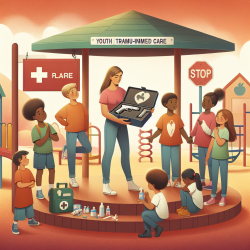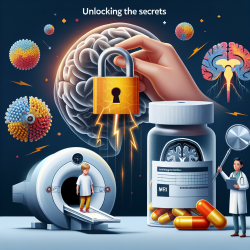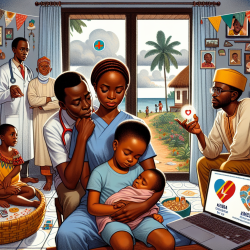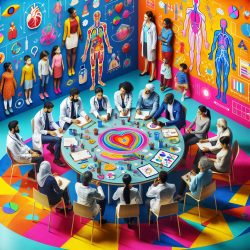Empowering Young Minds: The Impact of Manhood 2.0 on Youth Development
As professionals dedicated to the well-being and development of young individuals, it is crucial to continuously seek evidence-based approaches that can enhance our practice. One such approach is the Manhood 2.0 program, a promising initiative aimed at reducing unintended pregnancies among young men, particularly within Black and Latino communities. This blog explores the key findings from the research article "A Mixed-Methods Pilot Evaluation of Manhood 2.0, a Program to Reduce Unintended Pregnancy Among Young Men" and discusses how practitioners can leverage these insights to improve outcomes for young men.
Understanding the Manhood 2.0 Program
The Manhood 2.0 program is a group-based, after-school sexual and reproductive health (SRH) initiative designed for young Black and Latino men aged 15 to 18. The program focuses on examining gender norms, enhancing knowledge about contraceptive methods, and fostering positive attitudes towards supporting partners in pregnancy prevention. By engaging young men in reflective discussions and providing nonjudgmental facilitation, Manhood 2.0 aims to empower participants with the knowledge and skills necessary to make informed decisions regarding their sexual health.
Key Findings from the Evaluation
- High Program Engagement: The study found that 61% of participants attended at least 75% of the sessions, with 96% rating the program as "very good" or "excellent."
- Increased Knowledge and Self-Efficacy: Participants demonstrated significant improvements in their knowledge of contraceptive methods, including long-acting reversible contraceptives (LARCs) and hormonal methods. Additionally, there was an increase in self-efficacy related to partner communication about sex.
- Positive Attitude Shifts: The program led to more positive attitudes towards supporting partners in pregnancy prevention and increased discussions about SRH topics with friends and family.
- Social Support and Competence: Participants reported enhanced social competence and a greater sense of social support, which are crucial factors in promoting healthy relationships and reducing risky behaviors.
Implications for Practitioners
The findings from the Manhood 2.0 evaluation highlight the potential of targeted SRH programs to create meaningful changes in young men's lives. As practitioners, we can draw several actionable insights from this research:
- Integrate Gender Norm Discussions: Incorporating discussions about gender norms and masculinity into therapy sessions can help young men critically reflect on societal expectations and develop healthier attitudes towards relationships and sexual health.
- Foster Safe and Supportive Environments: Creating a safe space for open discussions and providing nonjudgmental support can enhance engagement and facilitate positive outcomes for young participants.
- Encourage Partner Communication: Emphasizing the importance of effective communication with partners about contraception and sexual health can empower young men to take an active role in pregnancy prevention.
- Promote Social Competence: Encouraging the development of social skills and support networks can help young men navigate complex social dynamics and reduce risky behaviors.
By integrating these strategies into our practice, we can contribute to the empowerment and well-being of young men, ultimately leading to better health outcomes and reduced unintended pregnancies.
To read the original research paper, please follow this link: A Mixed-Methods Pilot Evaluation of Manhood 2.0, a Program to Reduce Unintended Pregnancy Among Young Men.










